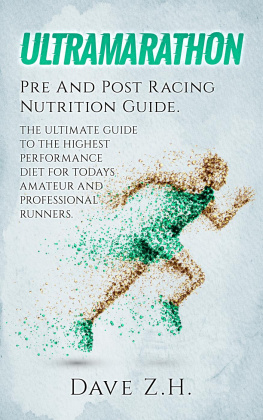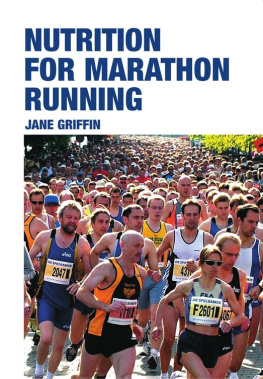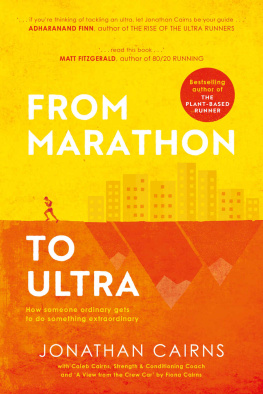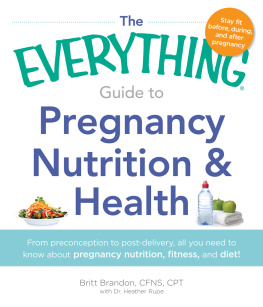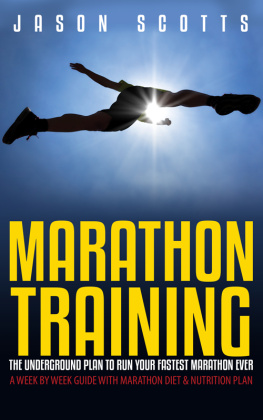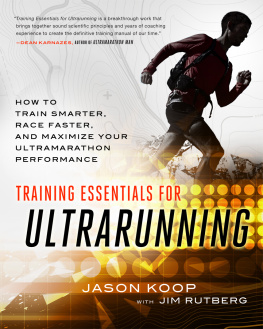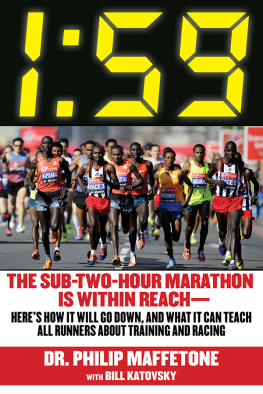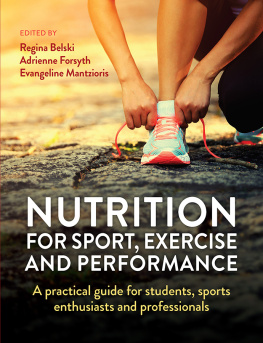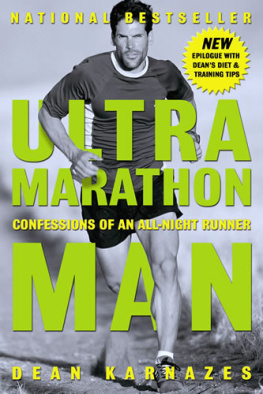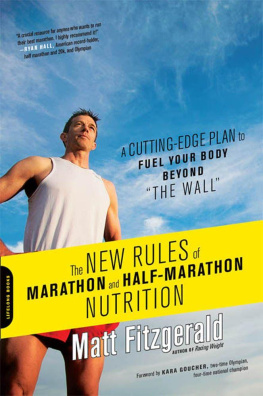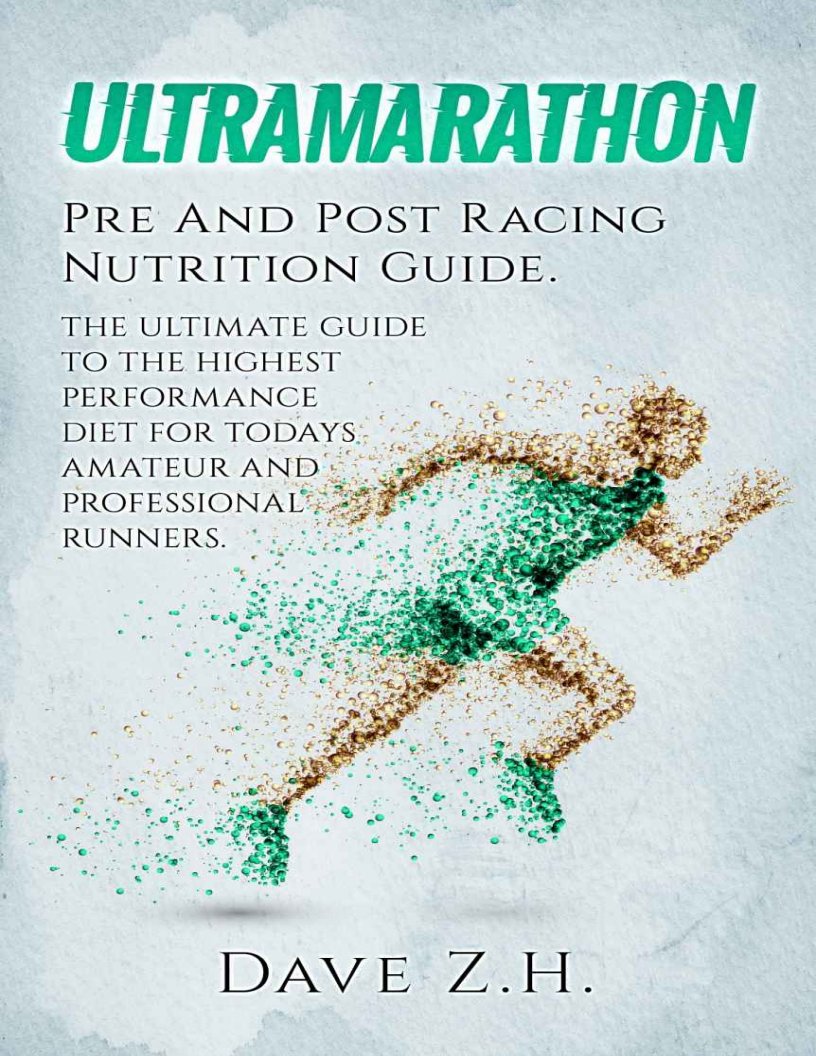
Table of Contents
SNACKING UP
ULTRAMARATHON
PRE- AND POST-RACING NUTRITION GUIDE
THE ULTIMATE GUIDE TO THE HIGHEST PERFORMANCE DIET FOR TODAYS AMATEUR AND PROFESSIONAL RUNNERS
TABLE OF CONTENTS
SNACKING UP
INTRODUCTION
P roper diet is a major factor in determining how well you run and must always be an integral part of your training .
First , let's look at a fundamental principle of endurance sports . It is a fact that your muscles will become stronger the more you do an activity . It is also important to note that when your muscles are sore you should give them time to heal with easier workouts . Training hard does make your muscles stronger , however , without going soft the following days you will not notice results ( hard/soft/hard/soft ).
Now physiologists have debated for a long time that if you eat carbohydrates after a hard training session , you will recover quicker . Latest tests have shown that if you consume extra protein , your muscles will recover even faster . Eat a protein/CARB combination within one hour after running to give yourself the best results .
Eat before you run
Generally speaking , you will perform better with a lighter stomach . However , if your running will last more than an hour , then you will need to eat something in advance to ensure you provide your body with its muchneeded fuel . The liver controls your blood sugar but it is limited . If you can eat something ( very light ) before long workouts , this will keep you going . However , everyone is different some people might be able to eat loads before a run while other people can't stomach any food before a run .
W hat to eat
As you guessed , it's true that you do not have to eat a healthy balanced diet to run , but the benefits of doing so will show in your running performance .
Here are some dietary guidelines :
* Eat balanced amounts of carbohydrates , protein and ( Yes !) monounsaturated fat if possible
* Eat more carbohydrates if you increase your training
* Do not overeat or skip meals . Breakfast is particularly important .
* Avoid junk food if you can .
The recommended calories
Here are some figures of what a healthy active runner should be aiming to consume for their caloric intake . A runner should eat :
5065% carbohydrates
1525% fat
2025% protein .
If you follow these guidelines , you will not only perform better you will start to feel better as well ! Thank you for purchasing this book it is my sincere hope that it will answer all your questions in pre and postracing nutrition .
Chapter1: RUNNERS CANNOT EAT EVERYTHING THEY LIKE
I m not running in the Olympics , and besides , I run for 90 minutes a day . Why should I even bother with a diet ? That much running will burn anything , right ?
Wrong .
Before we start discussing nutrition for runners , it is vital to deal with the myth that athletes can eat anything as long as they are working out enough .
In his book The Last Pick , athlete and philanthropist Dave McGillivray ( race director of the Boston Marathon ) revealed how he also adhered to this myth . To quote the man : If the furnace was hot enough , it would burn everything .
However , at the age of 57 , he was diagnosed with coronary artery disease much to his surprise .
Even doctors have lent credence , in the past , to the idea that since running for miles on end keeps weight , blood pressure , heart rate , and cholesterol levels in check , it should give license to athletes to eat as they please . This way of thinking is being set aside for a smarter approach to the nutritional needs of athletes .
However , recent research shows otherwise . The study in question ( published in the current edition of Missouri Medicine ) took 50 volunteers who had run at least one marathon in the last 2 . 5 decades and compared their health with a control group .
Another study from last year ( published in the British Medical Journal ) compared the carotid arteries of 42 volunteers ( runners who had qualified for the Boston Marathon ) with their less active spouses . The assumption behind the study was that the runners would have a better atherosclerotic risk profile , but the results showed otherwise .
There is another line of research that is seeking to establish that extreme endurance exercise can give rise to heart problems instead of preventing or treating them . Some cardiologists are adopting the theory that after a certain point , heavy workouts can cause heart disease instead of preventing it . The possible conditions include coronary artery disease , myocardial fibrosis , and even sudden cardiac arrest .
While there may not be conclusive evidence to establish this link , the reports of runners having heart disease are increasing by the day .
But our concerns are not to do with the extremity of the workout ( which is beyond the scope of this presentation ), but more with the runners diet . In this respect , all experts are unanimous that a highcalorie burning workout doesnt mean that you eat without shrewdness .
For these reasons , you need to learn about proper nutrition that ensures your longterm health as well as success as a runner .
Chapter2: PRE-RACING DIET
F ood is important to an athlete overall . However , it's even more important when you are running long distances and training for a road race . What you eat before your long run will help determine how well your race goes .
You need to start thinking about what you are eating two days before your long run or road race . In particular , you should be thinking about carbohydrates . Runners need to increase theircarb intake , but not theiroverall calories . It is a mistake that many athletes make . They feel that carboloading means that they can eat all the pizza and pasta that they can handle .
In reality , it pays to increase the percentage of carbs that you eat during the time . If you are eating more meat than your carbohydrate source ( such as rice ), eat more rice than meat during this period . Good sources of carbs to eat are pasta , rice , potatoes , and other starchy vegetables .
Right before your long run or road race , you need to try to stay away from foods that are high in fiber content .
Also , make sure that you are staying wellhydrated the few days before your long run or race . You also want to try to stay away from consuming a lot of alcoholic drinks . Alcohol can cause dehydration and you don't want this during your long run attempt .
The morning of your long run or race , you should eat at least an hour before you start . If possible , eat two hours before hand . Make sure that you are still eating plenty of carbs and protein . Many runners will eat a bagel or a piece of toast with peanut butter . Others will eat a bowl of cereal . If you do eat a bowl of cereal , watch the fiber content .
I like to eat a Power Bar before I head out on my long run . I also do this before any race that I run . It has all the nutrients in it that I need and it adequately fills me up without being too filling .
Regarding water intake the morning of , you will want to make sure that you are staying wellhydrated . However , another mistake that runners make is to overhydrate . It could cause you to have to stop to go to the bathroom during your run . A good rule of thumb is to drink 16 ounces of water about an hour before you plan on heading out . Then , stop drinking water until about 1015 minutes before you start . At that time , drink about 6 ounces to make sure you are hydrated enough to begin .
Next page
